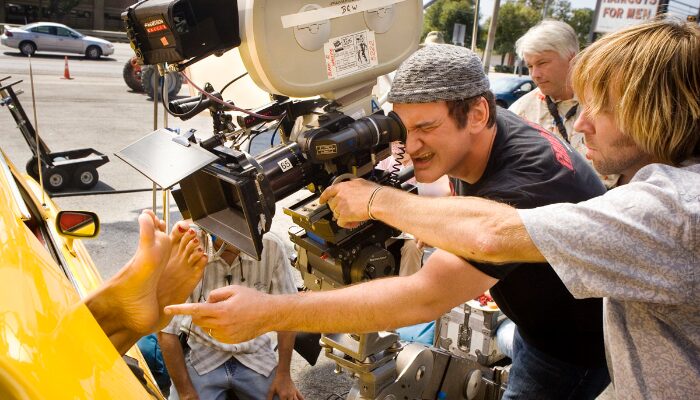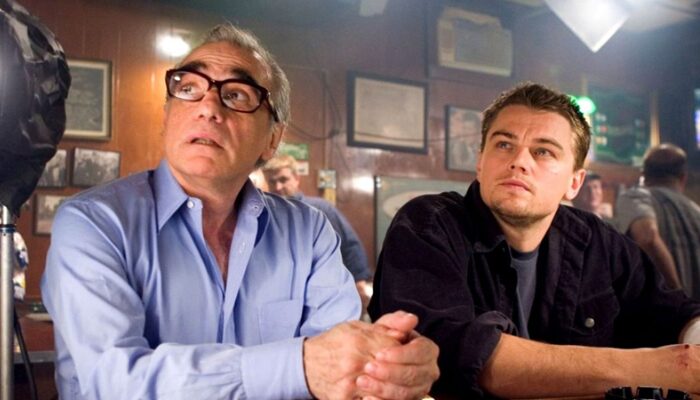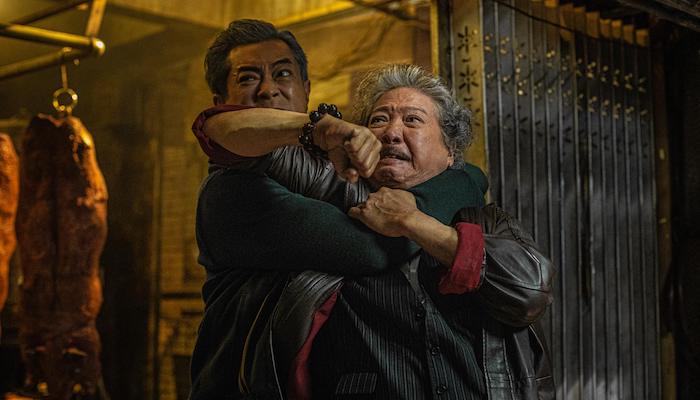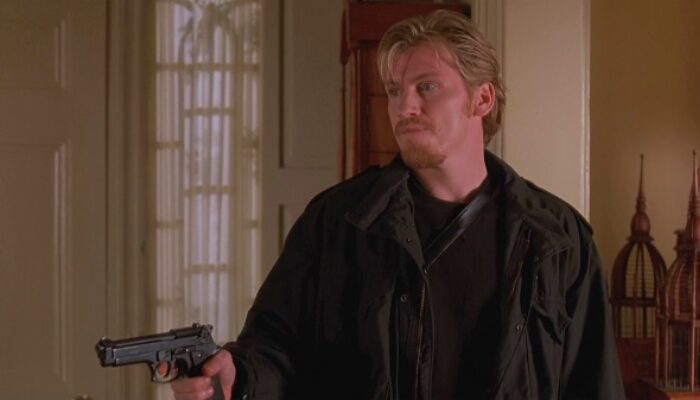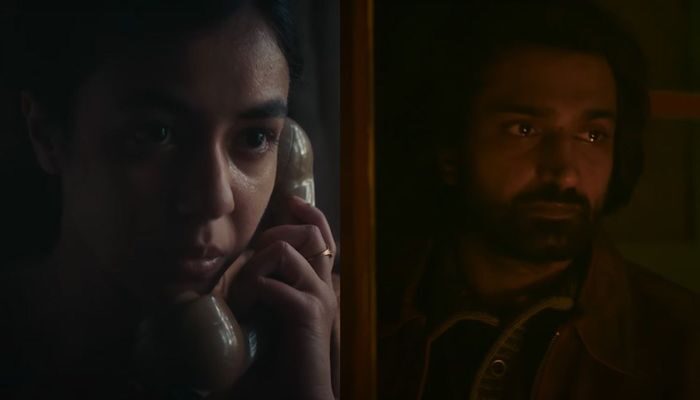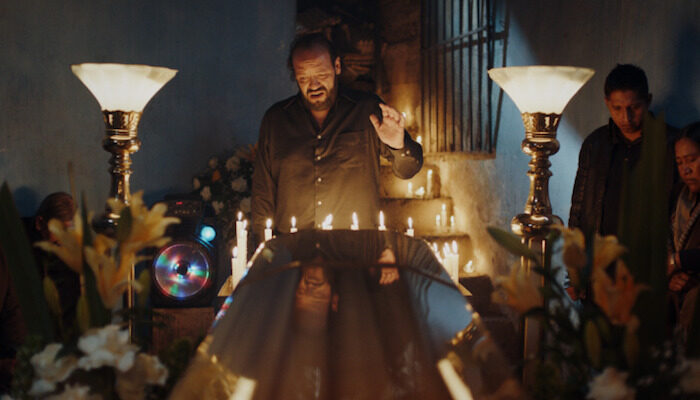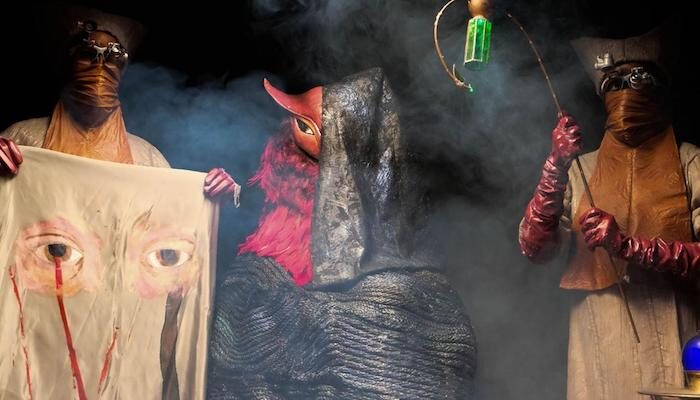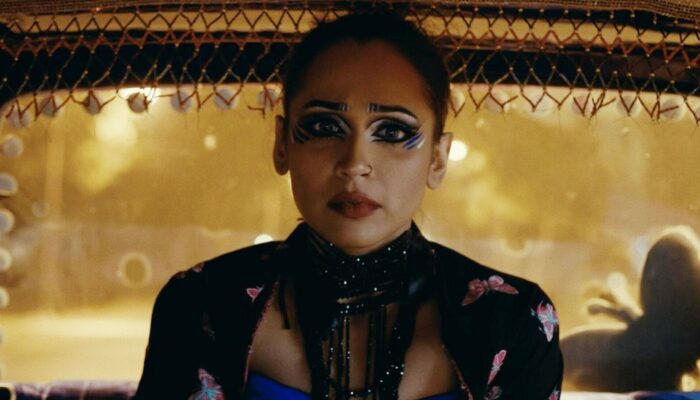Film Review: TWO SISTERS AND A HUSBAND: A Tapestry In Search of a Thread [Tribeca 2022]
Two Sisters and a Husband Review
Two Sisters and a Husband (2022) Film Review from the 21st Annual Tribeca Film Festival, a movie directed by Shlok Sharma, written by Shlok Sharma and Shilpa Srivastava, and starring Manya Grover, Himanshu Kohli, Ashutosh Pathak, Avani Rai, and Dinker Sharma.
And a beautiful tapestry is Two Sisters and a Husband, but insofar as the story it tells, it’s patchy, full of starts and stops, without a strong connecting thread to pull it all together.
Rajat is the beleaguered hero of this series of vignettes, each of which works well taken by themselves, but as a continuous narrative, never quite finds a real center. Not that the film doesn’t have its merits all the same. There’s plenty going on somewhere underneath, to be sure, and the premise is certainly an intriguing one: an untidy triangle involving a messy marriage to Tara, and Amrith, the younger sister who lives with them and carrying his child. But lacking an underlying continuity makes it hard for us to get deeply invested in the characters, at least as to how they relate to each other.
The film opens with a bang: a woman gets dragged out of her place — literally, face down on the floor — in the dead of night, by two men who break down the door, leaving a bloody streak on the floorboards behind her. Right away this leads us to think maybe it’s political. But next we see the title’s trio, never exchanging a word, driving up into the Himalayan foothills. Okay, then, maybe the woman’s a hostage? Eventually we discover they’re on the run from something, but we’re left to surmise what it could be, though deduction points to stigma as the likeliest reason.
From that point, flashbacks fill in the backstory. By the time we get the full picture, more or less, the impact is undermined by the scenarios comprising the collateral present-day narrative, most of which, despite the loose strings, are enjoyable on their own.
There’s also a peculiar mix of genres that work somewhat better, especially the sparks of comedy come out of left field. (Rajat is especially skilled at this.) Once again, taken individually and in the context of each scene itself, the acting, particularly among the principals, is the real strength, and the director seems to make the most of it. Their performances make this opus a fascinating watch.
All throughout, Rajat fights battles on three fronts, each with a different goal: husband to Tara; father to Amrita’s child; loyal manager to a decaying tourist hotel owned by Bhed Singh. To the demands of these three, Rajat manages to dole out his affection, frustration, and irritation equally, all the while schmoozing the hotel guests with surprising finesse.
Eventually we learn that Tara’s father bargained her virtually loveless marriage to Rajat, the landlord’s son, whose own father agreed to out of mutual convenience. We discover that Tara lost her own baby, and consequently falls in love with her therapist partly out of desperation. But to be fair, this doctor’s attentiveness does seem to go beyond the professional, more like dates than sessions. His abrupt exasperation seems out of whack, and his indignation unwarranted. It seems this poor lady can’t get a break.
The final confrontation between Rajat and his emotionally unhinged boss, Bhed Singh. As the solitary heir, so he claims, to an impoverished dynasty, Singh is beyond eccentric; he’s on some sort of clinical spectrum, balanced precariously between irrational fury and suicide. Evidently Bhed Singh was constrained by all the decorum of a royal without any of the benefits; it seems his bank account is as bankrupt as his mental state. He labors under a rather brittle delusion — both that his mother still lives but sleeps all the time, yet calls to him from the grave, begging him to join her.
In the meantime, Amrita, barely out of her teens, struggles with a broad-based ambivalence towards her unborn, as well as Tara and Rajat. This is understandable, of course; but the flips in attitude from scene to scene is so blunt and jarring that it gets a little disorienting. In the end she confronts her sister and brother-in-law, accusing them of using her as merely a surrogate in order to get a child for themselves. Amrita wanders out into the cold and goes into labor at the base of a mountain with a waterfall roaring close by. Visually this scene is striking, but the birth itself seems unusually expedient and tidy in the final long shot.
There are pop songs as part of the soundtrack. They may be intended to function as a sort supplemental narrative, but to me they seem too abstract for that purpose; but then, the English translation from Hindi may not do it proper justice. All in all, this a good effort; a stronger story spine wouldn’t have hurt, but the many high points do some really impressive heavy lifting.
Rating: 7/10
Leave your thoughts on this Two Sisters and a Husband review and the film below in the comments section. Readers seeking to support this type of content can visit our Patreon Page and become one of FilmBook’s patrons. Readers seeking more Tribeca Film Festival news can visit our Tribeca Film Festival Page, our Film Festival Page, and our Film Festival Facebook Page. Readers seeking more film reviews can visit our Movie Review Page, our Movie Review Twitter Page, and our Movie Review Facebook Page. Want up-to-the-minute notifications? FilmBook staff members publish articles by Email, Twitter, Facebook, Instagram, Tumblr, Pinterest, Reddit, and Flipboard.
Related Articles
FilmBook's Newsletter
Subscribe to FilmBook’s Daily Newsletter for the latest news!


